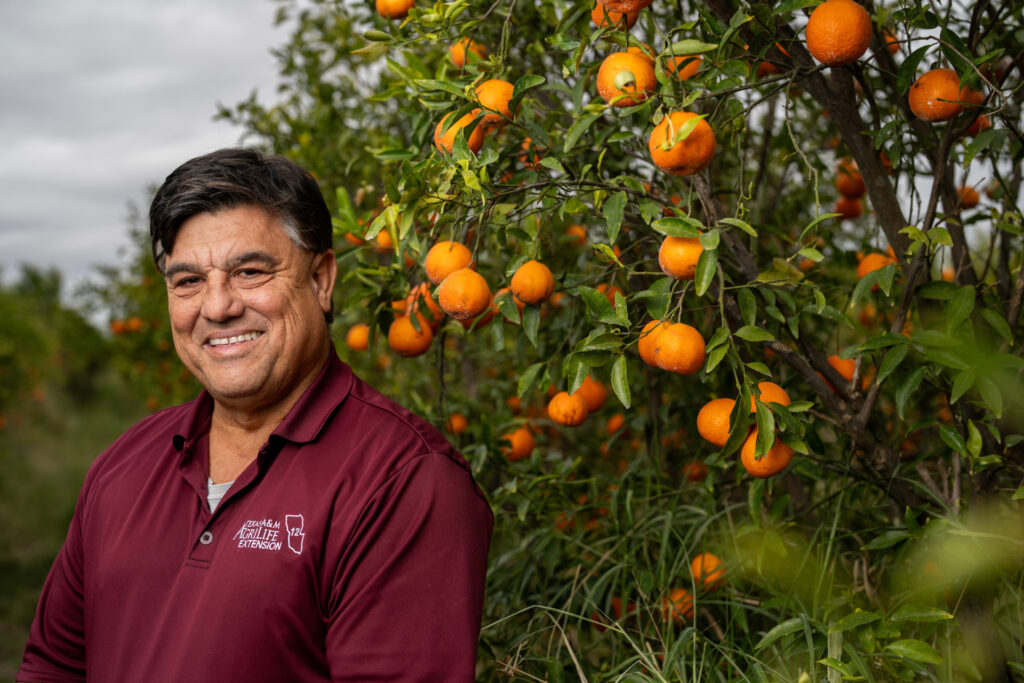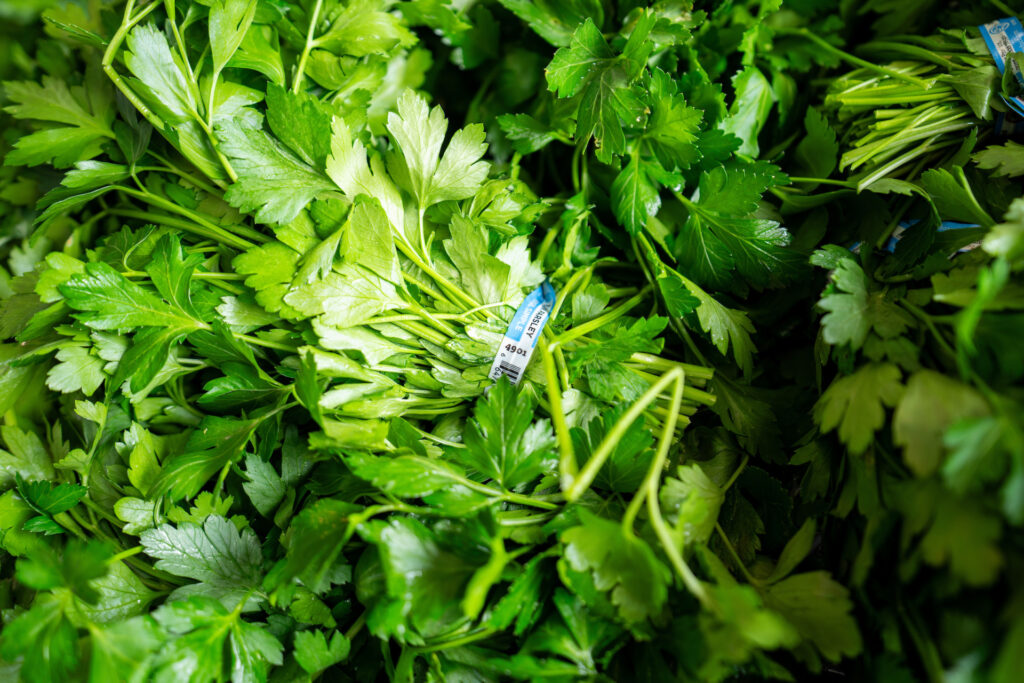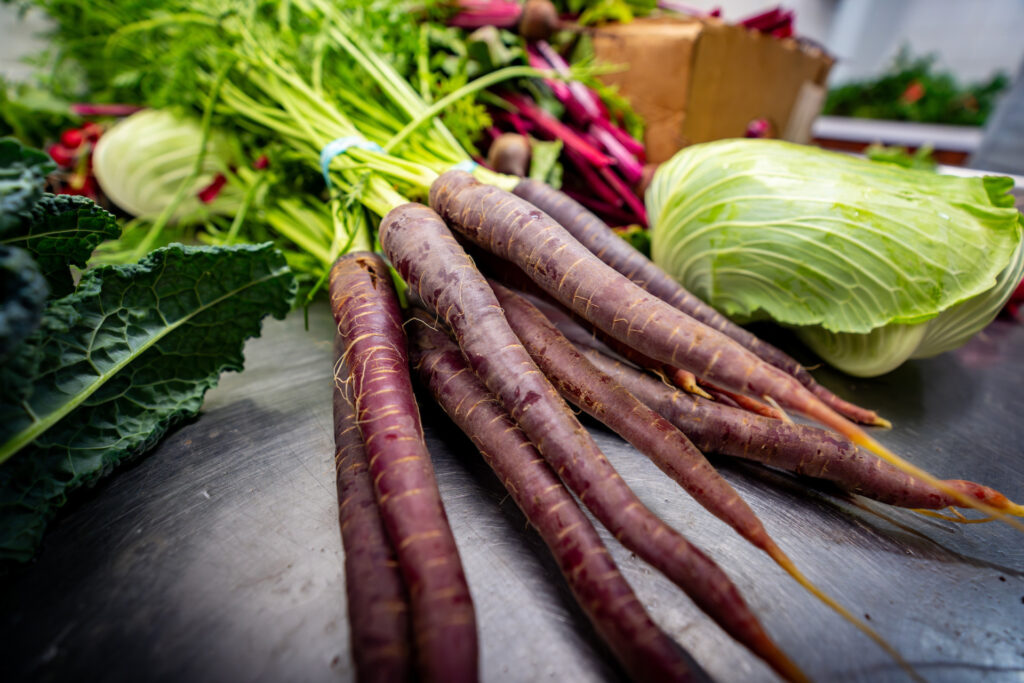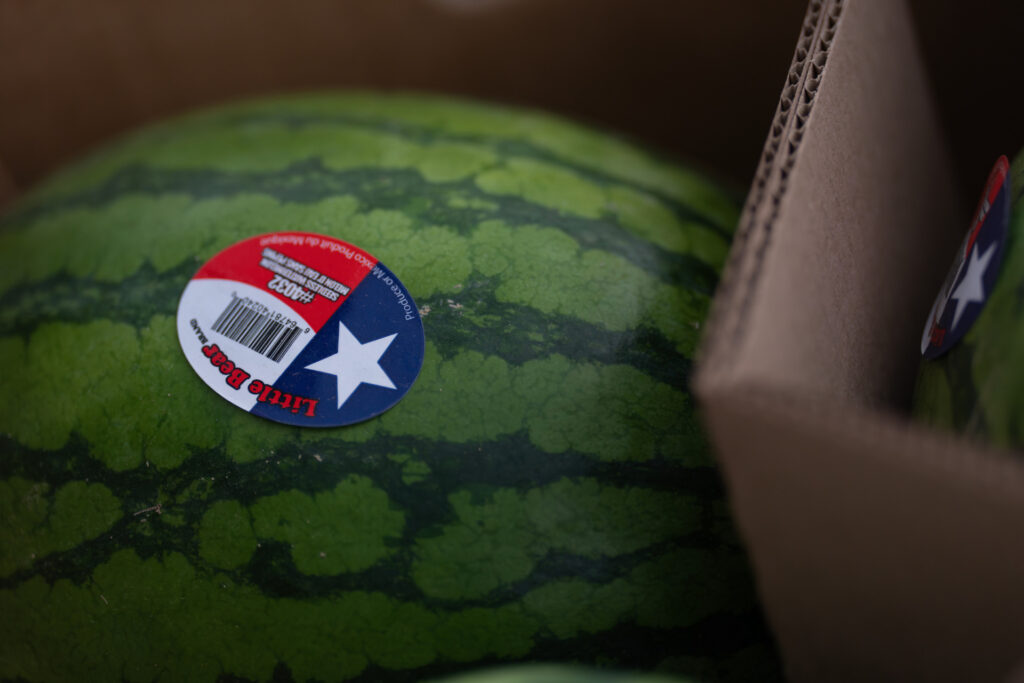Anciso named to lead AgriLife Extension horticulture efforts
Focus will be strengthening strategic stakeholder relationships
Juan Anciso ’83 ’84 ’89, Ph.D., spent the past 22 years as a “boots on the ground” problem solver for Texas commodity and vegetable crop producers in South Texas. He doesn’t expect that to change in his new role as the Texas A&M AgriLife Extension Service horticulture program leader and associate head of the Department of Horticultural Sciences.

Anciso also holds the title of professor within the Department of Horticultural Sciences at the Texas A&M College of Agriculture and Life Sciences and AgriLife Extension vegetable specialist at the Texas A&M AgriLife Research and Extension Center at Weslaco.
His approach as an AgriLife Extension horticulturist over the past two decades will serve him well in the new position, said Dan Hale, Ph.D., AgriLife Extension associate director for agriculture and natural resources, Bryan-College Station.
“Dr. Anciso has consistently demonstrated a strong, multidisciplinary approach to serving Texas when and where he is needed most,” Hale said. “He has made exceptional contributions to the economy and livelihood of Texans across our entire state, with a particular emphasis on South Texas as the AgriLife Extension vegetable specialist at the Texas A&M AgriLife Research and Extension Center at Weslaco.”
Anciso called the new-to-him role a “pleasant surprise.” He said he was thankful for the trust that Hale and the AgriLife Extension leadership, including director Rick Avery, Ph.D., placed in him.
“Obviously, our outreach and extension work continue as our horticulture specialists are doing excellent things every day,” Anciso said. “While we remain steadfast in the pursuit to improve the lives of Texans through horticulture, I am hoping to engage with my colleagues and partners within the industry to find more opportunities for research and education that supports producers and Texas horticulture into the future.”
Boots on the ground approach
Anciso earned a bachelor’s degree in biology, a master’s in plant protection and a doctorate in plant pathology, all from Texas A&M University.
He started his career with AgriLife Extension in 1989 as an integrated pest management agent in the Department of Entomology. In 1999, he began an educational program focused on food safety and preventing pathogen outbreaks linked to food-borne illnesses, like Salmonella, in fruits and vegetables imported from Mexico.
He was hired in 2002 as an assistant professor and AgriLife Extension vegetable specialist in the Department of Horticultural Sciences serving District 12-South Texas.
Anciso’s work in food safety continues today through multiple initiatives created to educate industry workers throughout the food system logistical chain from fields to grocery stores. He is heavily engaged with vegetable growers, including specialty crops like onions, potatoes, spinach, watermelons and citrus in South Texas.
He has been involved in a variety of research and extension projects to support horticultural operations and farmers throughout South Texas. Anciso has had an active grants program with more than $13 million in awards to projects and more than $2 million directly to his program throughout his career. His grant work has included collaborations with Texas A&M AgriLife Research along with federal and state agencies, including the Texas Department of Agriculture, the U.S. Department of Agriculture, USDA, and USDA-National Institute of Food and Agriculture, USDA-NIFA.
For instance, Anciso collaborated on USDA-NIFA specialty crop research initiatives designed to manage potato psyllids, which cause zebra chip in commercial potato production, as well as programs to find organic control options for vegetable growers.



An Aggie through and through
Amit Dhingra, Ph.D., head of the Department of Horticultural Sciences, said Anciso has an excellent track record of engagement with producers and industry that represent most every horticultural crop in Texas, from wine grapes, watermelons, greens and citrus to major commodities like cotton.
Dhingra said Anciso’s work in pest management, vegetable production and food safety bridge disciplines that are critical for the economic viability of producers and reliability of our food systems.
“Dr. Anciso is an Aggie through and through, and he has provided a wealth of experience and knowledge to support stakeholders, including horticulture industries in the Rio Grande Valley,” Dhingra said. “He has an excellent track record of leading and serving the needs of all our stakeholders, including students, faculty, the public and the farmers.”
Building on existing success to strengthen Texas horticulture
Anciso said he hopes to build on the successes of the outgoing associate department head Larry Stein, Ph.D., Regents Fellow and AgriLife Extension horticulture specialist, Uvalde.
Hale thanked Stein for his 13 years of dedicated service to AgriLife Extension and the department of Horticultural Sciences as associate department head.
“Dr. Stein has provided steadfast guidance for the agency and department in support of the Texas A&M University System’s land-grant mission,” he said. “He has made a tremendous impact with his work and research throughout Texas. We need him, he loves what he does, and we are happy that he will continue to serve our stakeholders as a horticulture specialist.”
Anciso plans to engage with stakeholders including producers, industry and agencies to meet the range of challenges. He hopes mutually beneficial relationships can provide opportunities for students, including internships and research projects.
“Stakeholders know we are trying to answer their needs, and we are thankful for their support and trust as we work together,” Anciso said. “I have always enjoyed working in the field and being a boots-on-the-ground kind of guy. I’m looking forward to visiting with producers, industry and faculty to build those relationships that can benefit everyone, including our students who are the future of Texas horticulture.”


